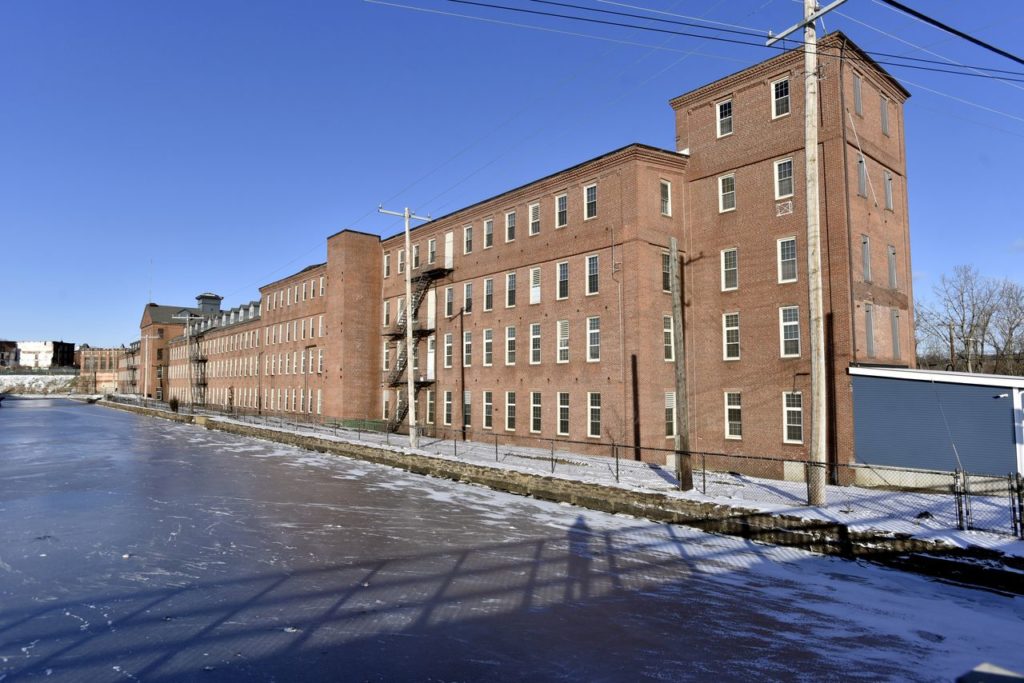MassLive.com
HOLYOKE — Ward 5 Councilor Linda Vacon filed an order Tuesday in the aftermath and ongoing investigation of a worker’s death in January at Trulieve, a cannabis manufacturer at 56 Cabot St.
Vacon, who chairs the Ordinance Committee, called for state permission to inspect large cannabis cultivation and manufacturing facilities to ensure that provisions for workers’ health and safety are followed.
According to reports, Lorna McMurrey, 27, collapsed during her shift after allegedly inhaling cannabis dust. She experienced difficulty breathing and later died at a hospital.
A preliminary inspection report by the federal Occupational Health and Safety Administration indicated McMurrey was grinding cannabis flowers, part of the pre-rolling process for joints. The worker was “killed due to the hazards of ground cannabis dust.”
The order states: “We (City Council) seek authorization from the (Massachusetts) Cannabis Control Commission to have local inspections of large cultivation facilities completed by our local Board of Health to ensure compliance with health and safety regulations for workers.”
In a conversation with the commission, Vacon said Trulieve has been under investigation since 2021. “This is an active, ongoing investigation that I’m hoping will be complete soon,” she said, “and hopefully understand some sort of findings.”
According to Vacon, enforcement falls on the commission, which regulates the recreational and medical marijuana industry. She added that local inspecting agencies are the Holyoke Board of Health and Building Commission.
Holyoke health director Sean Gonsalves said besides local ordinances, the Board of Health could pass regulations to modify or define what cannabis businesses can do. He noted that some Massachusetts municipalities used the health board as an enforcing agency.
The Holyoke Board of Health has “done little” in direct enforcement, Gonsalves said. However, the health department is involved in the site plan review process before the City Council grants a special permit to operate.
The board has not conducted on-site visits or investigations of cannabis manufacturing, growing or retail facilities. Gonsalves said the department lacks the capacity for such inspections. In fiscal years 2021 and 2022, the city rejected his request to add an inspector.
“As long as that happens, it reduces my ability to take on additional work and enforcement,” Gonsalves said. The Office of Planning and Economics informed him the city has granted over 70 special permits to cannabis operators.
Not all permit recipients are up and running, with some waiting for state licensing. “That is a massive number of inspections,” Gonsalves said, far beyond the Board of Health’s staffing capabilities.
Creating an investigative arm would require a sizable undertaking on the city’s and board’s behalf. However, a cannabis impact fee allows municipalities to fund enforcement efforts. Gonsalves submitted a $75,000 request to hire an outside consultant for inspection services.
Gonsalves recommended hiring a specialist for comprehensive cannabis regulation enforcement. “It’s worthwhile considering the amount of saturation we’re going to have of the cannabis industry in Holyoke,’ he said.
He added that no city department has a cannabis industry expert on staff. He also proposed “sharpening the city’s collective pencils” on marijuana regulations and enforcement, including financial, delivery and on-site consumption.
Vacon felt comfortable with Gonsalves and the planning office leading coordinating activities with the Cannabis Control Commission. “I want to make sure whatever we do, we’re in the right lane, in our lane and not their (commission) their lane,” she said.
Vacon wants local mechanisms to prevent injuries or deaths at cannabis facilities.
Gonsalves responded that though the state holds enforcement and regulatory authority, the commission has empowered local communities to “create an additional layer.” But, again, Holyoke currently lacks the inspectional and investigatory heft.
“We have funding to offset marijuana or cannabis industry-related costs or impact specifically,” Gonsalves said. “I can’t think of better uses of that money than setting it aside to hire a consultant-specialist, particularly when the Board of Health has such positive results in another industry.”
Councilor-At-Large Kevin Jourdain said the city has “cast a net” for anyone wishing to launch a cannabis business. “We do all of this. Meanwhile, we have no infrastructure in place to deal with it once it gets here,” he said. “It seems like we got everyone to come here, and now what?”
Even with the conditions the City Council attaches to special permits, Jourdain questioned who was policing the industry. He added the council “put the brakes” on how the impact fees were being allocated, with past funding proposals for sidewalk improvements and training scholarships.
Jourdain agreed with Gonsalves’ assessment and consultant hiring recommendation.
If you purchase a product or register for an account through one of the links on our site, we may receive compensation.
H/T: www.masslive.com



